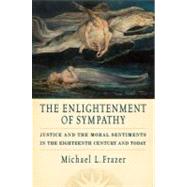
| Acknowledgements | |
| Introduction: A Tale of Two Enlightenments | |
| Sentimentalism Before Hume | |
| The New Science of Human Nature | |
| Religious and Metaphysical Foundations | |
| Theories of Justice | |
| Hume's Free-Standing Sentimentalism | |
| Sympathy and the Moral Sentiments | |
| Moral Development | |
| Hume's Normative Theory | |
| Hume's Conservative Sentimentalism | |
| Hume's Theory of Justice | |
| The Sentimentalist Case Against Hume's Theory | |
| Adam Smith's Liberal Sentimentalism | |
| The Alleged Incompatibility of Sentimentalism with Individualism | |
| The Space Between Actor and Spectator: Sympathy and Moral Judgment | |
| The Space Between Actors: Justice and Natural Jurisprudence | |
| Kant's Abandonment of Sentimentalism | |
| The Critical-Period Position on the Foundations of Morals | |
| The Critical-Period Normative Evaluation of Sympathy | |
| The Critical-Period Theory of Affects and Passions | |
| A Contrasting Pre-Critical Position | |
| Herder's Pluralist Sentimentalism | |
| Sentimentalism and the Problem of Diversity | |
| From Sympathy to Diversity | |
| From Diversity to Empathetic Understanding | |
| From Empathetic Understanding to Justice | |
| Sentimentalism Today | |
| Sentimentalism and Social Science | |
| Sentimentalism and Normative Theory | |
| Sentimentalism and Political Practice | |
| Bibliography | |
| Table of Contents provided by Publisher. All Rights Reserved. |
The New copy of this book will include any supplemental materials advertised. Please check the title of the book to determine if it should include any access cards, study guides, lab manuals, CDs, etc.
The Used, Rental and eBook copies of this book are not guaranteed to include any supplemental materials. Typically, only the book itself is included. This is true even if the title states it includes any access cards, study guides, lab manuals, CDs, etc.